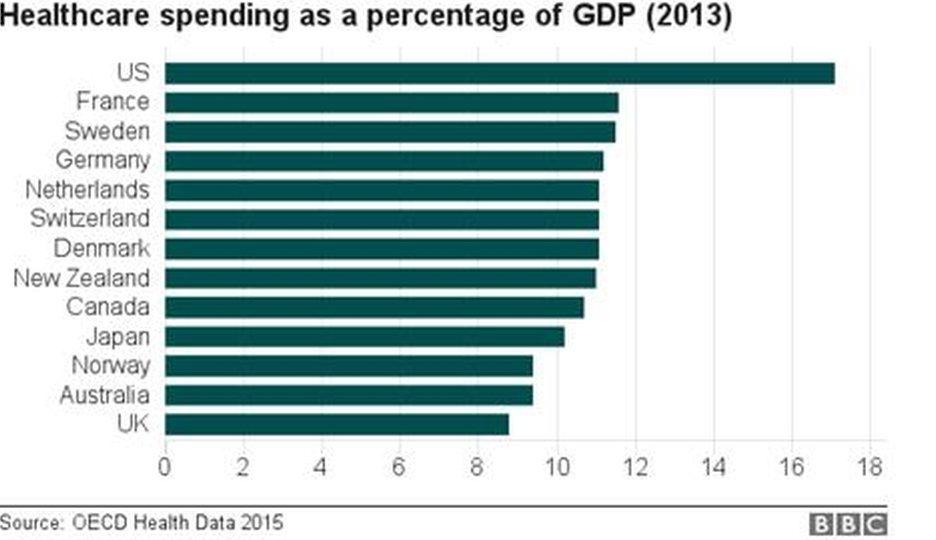US Congress takes big step to Obamacare repeal
- Published

The US House of Representatives has taken the first step toward demolishing President Barack Obama's signature healthcare law, known as Obamacare.
Republicans passed a budget measure to introduce a bill - which Democrats cannot block - to roll back the law.
But members of both parties in Congress are concerned about a lack of replacement for Obamacare.
The political showdown raises a big question mark over medical coverage for more than 20 million Americans.
The measure passed in the House nearly on a party-line vote, 227-198, delivering a blow to President Obama's legacy a week before he leaves office.
It instructs four committees on Capitol Hill to draft repeal legislation by 27 January.
The Senate passed the resolution by 51-48 on Thursday.
US patients await Obamacare's fate
"By taking the first step toward repealing Obamacare, we are closer to giving Americans relief from the problems this law has caused," House Speaker Paul Ryan said in a statement following the vote.
"This resolution gives us the tools we need for a step-by-step approach to fix these problems and put Americans back in control of their health care."
Obamacare has provided healthcare subsidies and medical coverage for millions who are not covered through work.
It has banned insurers from refusing coverage to people who are already ill, and curbed medical charges to the sick and elderly.
But the law has been rocked by rising premiums, large fees and national insurers exiting the marketplaces.
Egged on by Donald Trump, Republicans have vowed to repeal the Affordable Care Act but conservatives have not yet agreed on a new plan.

Two Obamacare experiences
Duncan, 22, has been receiving chemotherapy and he's fearful that repeal will mean he loses his place on his parents' insurance
Frank, 62, has experienced rocketing premiums and calls the law a "snowball of chaos"

What do Americans think of Obamacare today?
Republicans have provided few details on their plans to replace Obamacare.
It is expected the replacement would seek to end the statute's unpopular requirement that many individuals buy coverage and that larger companies provide it to workers.
However, experts say these mandates are needed to keep the insurance marketplace solvent.
Residents of Kentucky, one of the unhealthiest states in America, talk to the BBC about their hopes and concerns about Obamacare

Mr Trump's choice for health and human services secretary, Tom Price, will play a key role in shaping the planned overhaul.
The Georgia congressman has previously touted his own Obamacare replacement plan.
The nonpartisan Committee for a Responsible Federal Budget said this month that repealing Obamacare would cost about $350bn (£286bn) over the next decade.
Republicans hope a budget reconciliation bill - which would strip Obamacare of funding - will now be drafted in committee and could pass a month after that.
It would be able to pass with a simple majority in the Republican-controlled Congress, making it filibuster-proof.